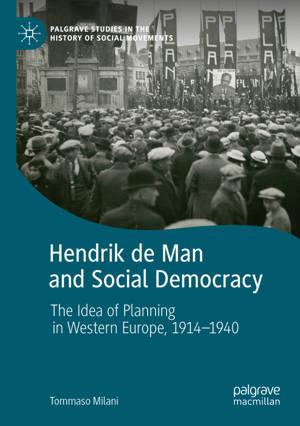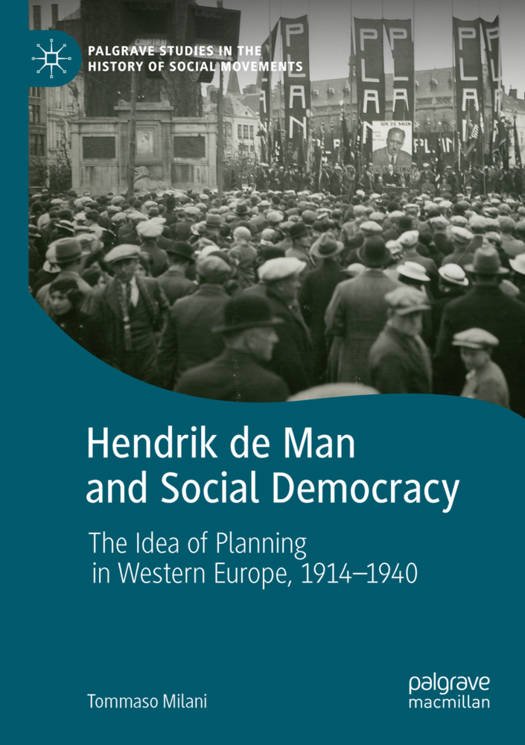
- Retrait gratuit dans votre magasin Club
- 7.000.000 titres dans notre catalogue
- Payer en toute sécurité
- Toujours un magasin près de chez vous
- Retrait gratuit dans votre magasin Club
- 7.000.000 titres dans notre catalogue
- Payer en toute sécurité
- Toujours un magasin près de chez vous
Hendrik de Man and Social Democracy
The Idea of Planning in Western Europe, 1914-1940
Tommaso MilaniDescription
The book investigates the intellectual and political trajectory of the Belgian theorist Hendrik de Man (1885-1953) by examining the impact that his works and activism had on Western European social democracy between the two world wars. Based on multinational archival research, the book highlights how the idea of economic planning became part of a wider effort to address an ideological crisis within the socialist movement and revitalise the latter amidst the Great Depression. A heavily controversial figure also because of his subsequent involvement in Belgian wartime collaboration, de Man played a pivotal role in challenging traditional Marxist assumptions about the role of the state under capitalism and in promoting transnational exchanges between unorthodox social democrats across Europe. Starting from de Man's experience in World War I, the book analyses his departure from Marxism, his elaboration of an alternative social democratic paradigm, his entry in Belgian politics as wellas the reception of his thought in France and Britain.
Spécifications
Parties prenantes
- Auteur(s) :
- Editeur:
Contenu
- Nombre de pages :
- 329
- Langue:
- Anglais
- Collection :
Caractéristiques
- EAN:
- 9783030425364
- Date de parution :
- 16-06-21
- Format:
- Livre broché
- Format numérique:
- Trade paperback (VS)
- Dimensions :
- 148 mm x 210 mm
- Poids :
- 417 g







